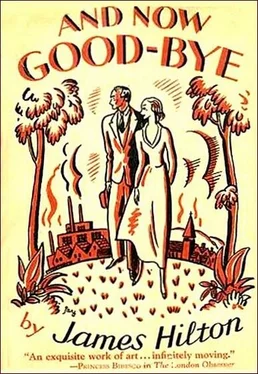After he had gone his daughter resumed her work of teaching. She had been glad of the interval’s respite, though she always said that after her father’s intervention a class was completely ruined for the rest of the day.
Howat usually ignored afternoon tea, though if he were out visiting and were offered it, he would accept. He preferred, however, when he was at home, an uninterrupted hour by the fire before his ‘proper’ tea—a meal which consisted as a rule of tea and an egg. After this there was often another gap of an hour or so before the beginning of evening engagements.
On this unpleasant November day Howat occupied both odd hours in reading a book which would have deeply shocked ninety per cent of his congregation had there been the slightest possibility of their understanding it. It was Jeans’s “The Universe Around Us,” borrowed from the local library, which had obtained it at his own request.
As Mary had predicted, there was only a very small attendance at the Young People’s Guild that evening. The Guild was one of Howat’s pet institutions; he had founded it himself some half-dozen years before, and it had flourished, he ventured to think, as handsomely as could have been expected. It met weekly during the winter months; in summer there were country rambles, visits to places of interest, and so on. It had always been Howat’s idea to make it a centre of secular enlightenment (backgrounded, of course, by the chapel atmosphere); most of the weekly talks were on literary, musical, or artistic subjects—very few were definitely religious. This aspect alienated the sympathies of some of the older people, who thought that Howat was coddling the young and shirking his plain job of rubbing religion into them. Howat, though, did not care about that; if there were ever to be a choice (though there would not be if he could help it) he was all out for the young; the old, he felt, were so confident of attaining Heaven that they could look after themselves.
As founder and president, Howat always opened the terminal session by an address on some subject or other; it also fell to him to fill in any gaps made by speakers dropping out after the programme had been made up. This November Monday was one of these gap-filling occasions, his talk on Mozart being in lieu of a paper on modern town-planning by a young local architect.
The place of meeting was a bleak schoolroom furnished and panelled in pitch pine—a very hot room at one corner near a stove, and very cold and draughty elsewhere. Nothing relieved the brown varnished monotony of the walls except a map of Palestine and a tattered and faded temperance banner. A desk stood on a slightly raised platform, and on the desk lay a Bible, a hymn- book, and a carafe of water. (The room was used regularly for Sunday School and other chapel functions.) There was also a cupboard which, when incautiously opened, usually emitted a cascade of ragged hymn-books and tea-party crockery. Two inverted T-shaped gas-brackets shed a hissing illumination over the rather melancholy scene, and this evening wisps of fog curled in fitfully when the green-baize doors opened from the vestibule.
Howat gazed with a certain dreamy satisfaction on the dozen or so young persons who comprised his audience. In some ways they satisfied him as much as a far larger gathering; because he could think of most of them individually, knowing their names, homes, and circumstances; and he could marvel a little at the spirit that had brought them out, on a foggy night, to hear him talk about Mozart. Surely he was not wrong, at such a moment, in thinking that he was accomplishing some kind of good in Browdley, that his years of persistence were bearing fruit after all? And he felt, as deeply as he had ever felt in the pulpit, inspired by a passionate desire to give these few youngsters something adequate to their degree of needing and wanting. The whole world stretched out beyond Browdley, a world they might and probably would never see; could he not show them an inner world of beauty, visible to all whose eyes were attuned to it? He thought then, quite suddenly and with an odd sensation of mind- wandering: These walls would look better with a few pictures—why not some of those coloured reproductions of Italian primitives, and so on? It wouldn’t cost more than a few shillings; I daresay I could afford it myself. Still, I shall have to economise for a time—that trip to London will cost a bit, and the specialist’s fee will probably be stiff- five guineas, maybe, or three if I plead poverty. Wonder if there is anything really serious the matter—queer how that pain comes and goes—I hadn’t it this afternoon while I was talking to those children in school, but it came back during tea. Never mind, stick it out, whatever it is—no sense in whining over things…
The mere thinking of his throat made it feel dry and parched; he would have poured out a drink from the carafe had not the water repelled by its stale, yellowish tinge. And just for a moment there carne over him the most absurd and ridiculous longing for something he would never dream of having—a glass of beer. One of those dark brown frothing tumblers he sometimes saw through the windows of public-houses—public-houses all warm and brightly lit, with men in them talking sociably and perhaps playing darts. In his mind, just for the moment, the picture stood out in vivid contrast to the chill, comfortless room in which he was shortly to begin his address.
He half-smiled at the quaintness of the vision, and then, with a quick return to reality, nodded and smiled to Mr. and Mrs. Garland, who had just entered. They were by no means ‘young people’, and he did not recollect their ever having attended a Guild meeting before; still, he was glad enough to see them, though faintly surprised.
Swallowing hard to ease the dryness of his throat, Howat rose from his chair and began to speak. He began haltingly, unfluently, as he so often did; those who heard him for only the first minute of any speech or sermon must certainly have thought him a very poor orator. It was as if he had, by a tremendous effort, to launch himself into a world of mind and spirit in which words came of their own accord. He kept saying: Mozart…Mozart…His face had a peculiar nervous twitch during those initial struggles; his rugged features looked, for the time, almost agonised; till, with a suddenness that was sometimes rather amusing, he was ‘off’. He had, beyond doubt, a voice and an enunciation of great beauty.
Certain of his words and phrases sounded, in his own ears, far above others, and went on echoing long after he had spoken them. Was he soaring above their heads, he wondered, momentarily, remembering his daughter’s caution? Well no, he thought not; he hoped not; and besides, even if he were, perhaps he could get them to soar with him—above their own heads and his too. If only that sharpness in his throat would disappear; it was absurd, at his age, to be bothered in such a way; he was only forty-three and already seeing specialists and worrying about his health. And suddenly, looking round at the young faces in front of him, he saw them all labelled, as it were, with the inevitable doom of age and death; life was so tragically short, and it seemed in some sense a kind of divine toss-up whether one succeeded or failed in getting anything out of it during the time allowed. How necessary to make the most of youth, to pursue while the pursuit had zest, to apprehend the beauty of the world that lay everywhere around, in sight and sound and feeling…He made a pause in his remarks, wound up his portable gramophone, and played over the Trio in E Major and then the two great Overtures; the music floated past him, dissolving, as it were, into the air of which it was born; he always felt that Mozart was like that, perfectly and enchantingly meaningless except for that one central unanalysable meaning—beauty. ’fever, he said when the records were finished, there had been an angel born upon this earth, that angel was Wolfgang Amadeus Mozart. We might not know a very great deal about the future life, but we must feel—indeed it was almost impossible not to feel—that it was linked up in a marvellous way with the beauty of our own world…Mozart…Raphael the painter…William Blake the poet…And then, with a little mist before his eyes, he was aware that he was making contact, that he was actually and for a second or so putting into the minds of these boys and girls an urge, a longing for something beyond their own immediate surroundings.
Читать дальше











